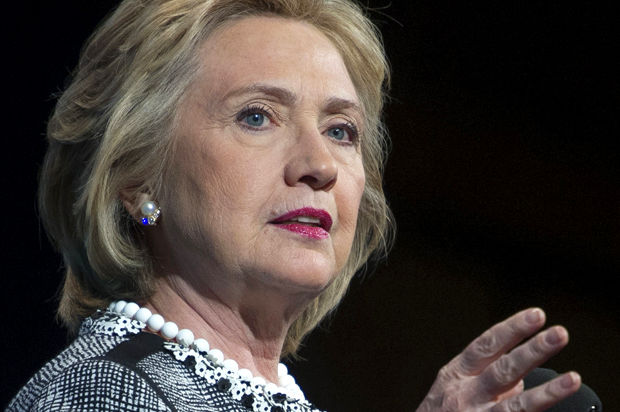Allies of former Secretary of State Hillary Clinton are in full defensive mode following the New York Times’ revelation Monday night that Clinton exclusively used a private email account to conduct official business during her four-year tenure at the State Department, maintaining that Clinton’s use of the account was consistent with both precedent and federal rules. But evidence that Clinton flouted federal rules continues to mount, with new reports laying bare the lengths to which Clinton and her team went to skirt disclosure requirements, despite records-keeping regulations in place while she was the nation’s top diplomat.
In the wake of the Times’ report, the Daily Beast’s Michael Tomasky and Media Matters for America (disclosure: I once worked for the latter, writing about LGBT issues) assailed the paper for failing to note that the current set of regulations pertaining the use of outside email accounts did not take effect until after Clinton left the State Department in early 2013. But as Mother Jones’ David Corn points out, a 2009 regulation from the National Archives and Records Administration (NARA) requires officials “using a system not operated by the agency” to preserve their correspondence within the “appropriate agency record-keeping system.”
“This rule is clear,” Corn writes. “If Clinton used personal email to conduct official business—which apparently did not violate any federal rules at the time—all of those emails had to be collected and preserved within the State Department’s recordkeeping system.”
You can read the relevant section of NARA regulations here.
Despite the explicit language of the rule, however, Clinton and her aides evidently failed to preserve all business-related correspondence. Gawker reported in 2013 that even though the Obama administration had vetoed Clinton’s effort to give the sycophantic and viscerally anti-Obama Sidney Blumenthal a State Department job, Clinton nevertheless received emails from Blumenthal concerning official government business, including the 2012 attack on the American consulate in Benghazi, Libya. As Gawker noted at the time, screenshots of the hacked emails did not make clear whether Clinton responded to Blumenthal’s missives. But we may never know; when Gawker filed a Freedom of Information Act (FOIA) request seeking the release of the Clinton-Blumenthal correspondence, the State Department replied that “it could find no records responsive to our request,” Gawker’s J. K. Trotter related yesterday.
The Blumenthal case is the clearest sign yet that Clinton used her private account to avoid legitimate FOIA requests. It also exposes the absurdity of Clinton spokesman Nick Merrill’s defense that Clinton’s emails to other State Department officials went to their official state.gov accounts, so the correspondence was preserved anyway. Not only does that fail to account for Clinton’s apparent non-compliance with the 2009 NARA regulations, but it also conveniently glides over the fact that Clinton was corresponding with plenty of people — foreign leaders, civil society figures, and the like — who did not have government email accounts.
What’s more, one source informs Gawker that top Clinton aides — including longtime assistant Huma Abedin, who simultaneously worked for the secretary and did corporate consulting — also used private accounts on the same domain Clinton employed. As pathetic as Merrill’s excuse already was, it’s rapidly becoming even more of a joke.
And then there’s this: While Clinton allies are quick to highlight that Bush-era Secretary of State Colin Powell also used a private email account to conduct diplomatic business, Clinton appears to have gone much further: The Associated Press reports that she set up her own server to transmit emails, even though government employees typically use government servers. The server was reconfigured shortly after Clinton left the State Department.
In response to a State Department records-keeping request two months ago, Clinton aides turned over 55,000 pages of emails. But her aides personally reviewed the correspondence and decided which emails were worth sending to the department. The Clinton camp has yet to elaborate on the process aides used to review the emails.
Clinton, who spoke at the 30th anniversary gala of the pro-choice group EMILY’s List on Tuesday night and is expected to launch her second White House bid next month, has not commented publicly on the imbroglio.

